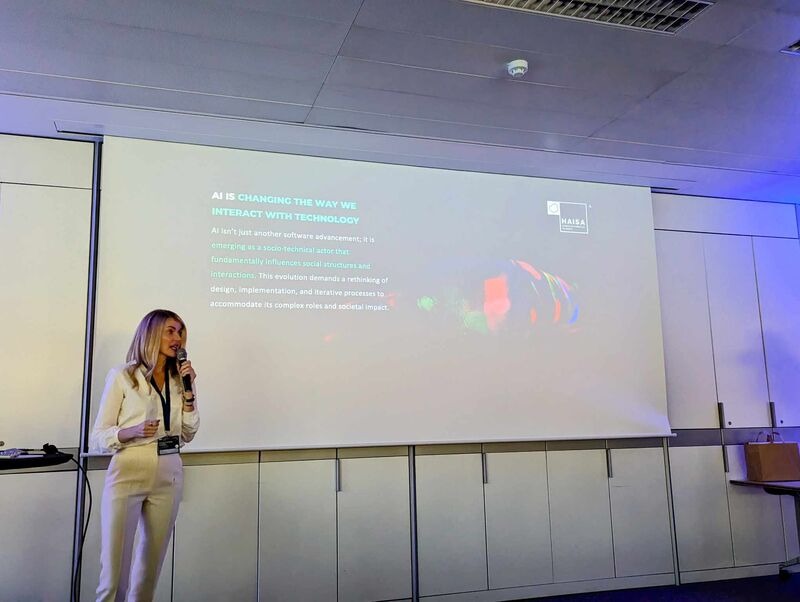Humane AI Meeting Kicks Off at Umeå University with Focus on Advancing Major Projects in Human-AI Collaboration
The first day of the Humane AI meeting at Umeå University’s Universum Building marked a deep dive into four key macroprojects aimed at advancing human-AI collaboration and understanding the broader societal impact of generative AI (GenAI). Researchers and experts gathered to push forward these ambitious projects, each targeting critical aspects of AI’s integration with human activity and its ethical considerations.
The four macroprojects under discussion included:
- Benchmarking for Human-AI Collaboration with GenAI Models: This project seeks to establish standardized benchmarks for evaluating how effectively generative AI can collaborate with humans, addressing real-world applications and challenges.
- Ethical Metrics for Humane AI: Focusing on AI ethics, this initiative aims to develop concrete metrics to ensure that AI technologies align with human-centered values and principles, promoting responsible and humane AI applications.
- Learning Using GenAI: Researchers are exploring the potential of GenAI in enhancing learning experiences, examining how AI models can support and improve educational processes.
- Impact of GenAI on Society: This project investigates the social implications of GenAI, analyzing how its integration may influence social structures, cultural dynamics, and overall public perception.
The Humane AI meeting sets the stage for a collaborative and forward-thinking approach to these projects, each essential for building a future where AI enhances, rather than detracts from, human experiences.






Dr. Alexandra Diening and Jie Li recently shared insights at the ADRA annual event, discussing the impact of AI and the need for societal awareness around it. Their presentation at the Humane AI Net workshop inspired Dr. Diening to launch the Human-AI Symbiosis Alliance®, focusing on mutual benefits between humans and AI—whether in mutualism, commensalism, or even competitive dynamics. They highlighted the power of synthetic users in participatory design and urged the audience to explore AI capabilities firsthand before forming judgments.
What’s your take? Are we headed for mutualism or competition with AI? Let us know!